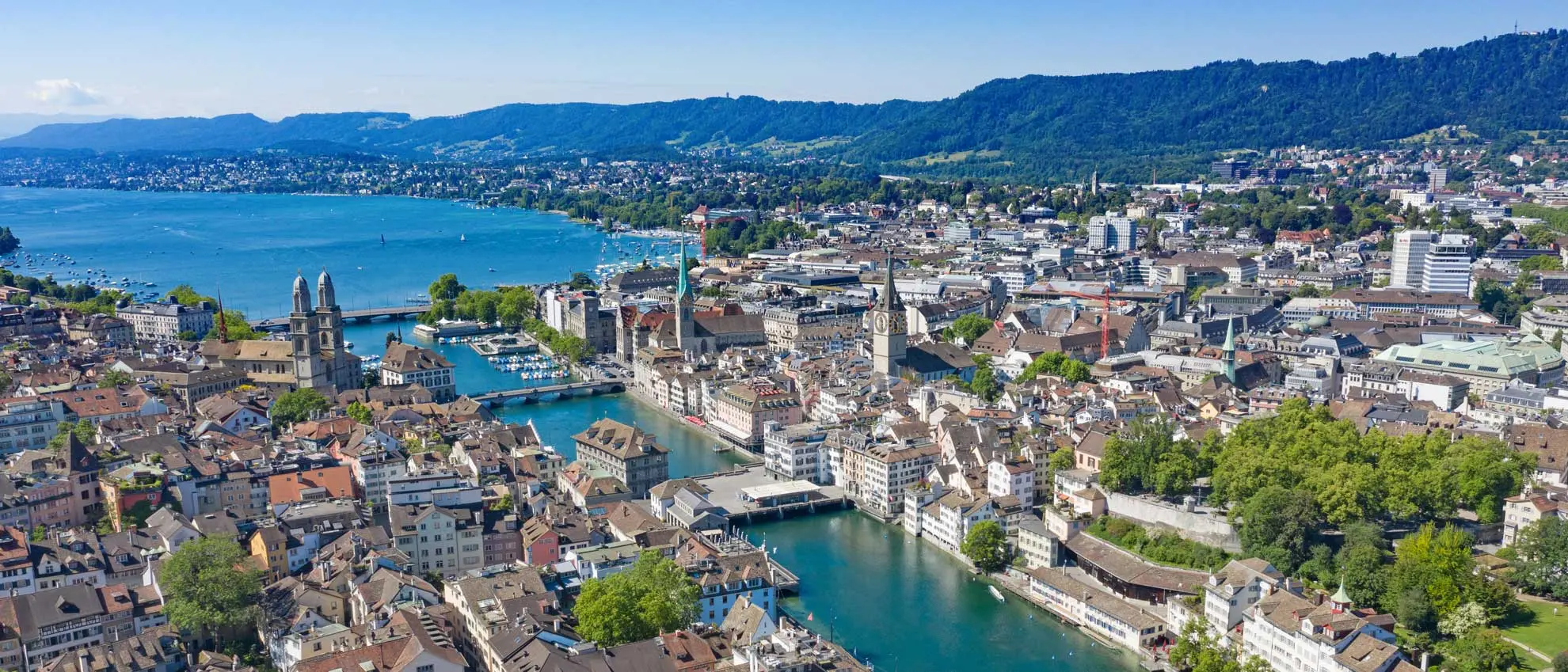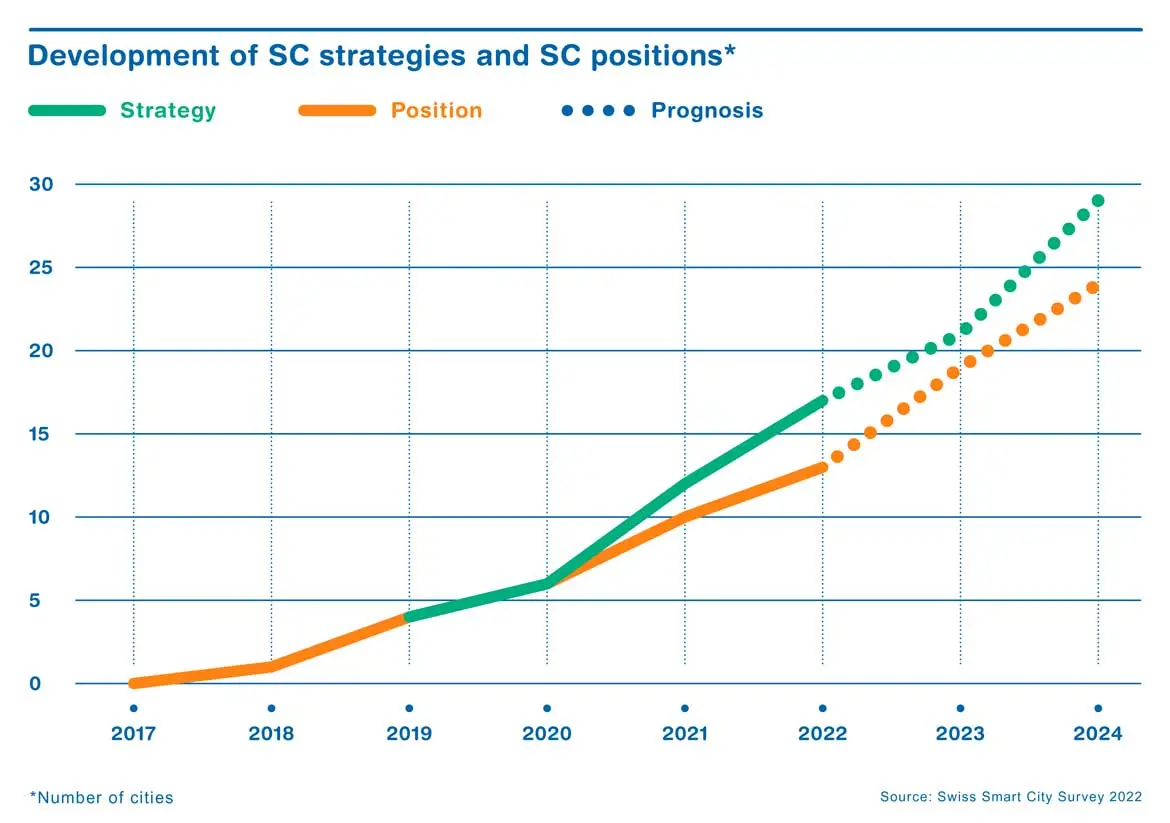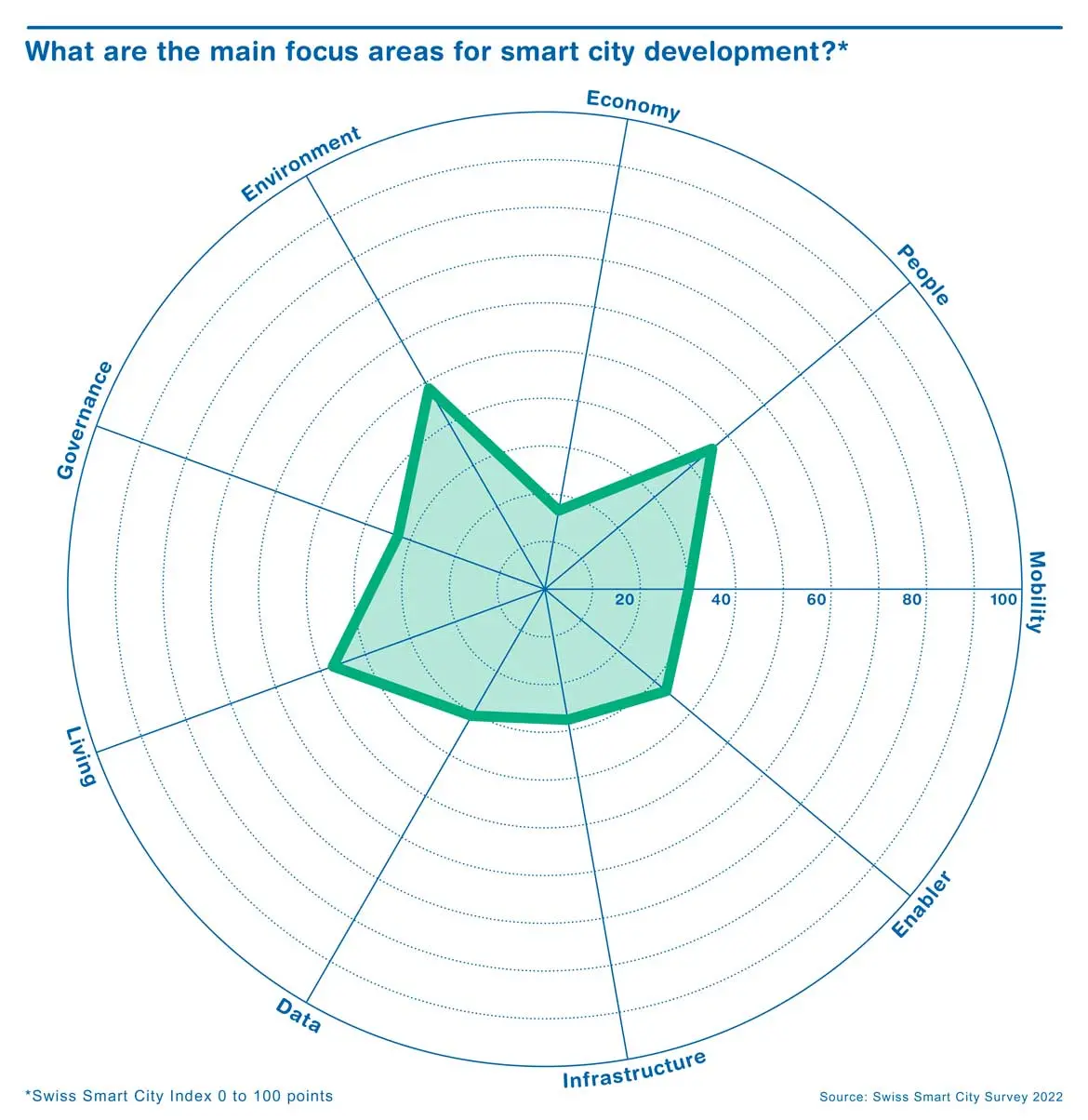Smart City activities on the rise in Swiss cities
More than 50 Swiss cities and municipalities are already actively engaged with the smart city development concept, according to the Swiss Smart City Survey 2022 conducted by ZHAW. An overarching smart city strategy is also increasingly being pursued, but only a few cities have a fully developed approach.

In Switzerland, there has been an increase in smart city activities in cities and municipalities since 2016. However, the organisational design of "smart" cities within the city administration is still relatively low. This is shown by the ZHAW's Swiss Smart City Survey 2022, which was conducted together with a broad partnership for the second time after 2020. Although more than half of the 87 participating cities rate the topic of smart city as "important" or "very important", only 19 cities have a developed smart city strategy. This number has increased compared to 2020 and will continue to increase in the coming years: In fact, 15 cities currently have a strategy under development.
Multiple aspects of a smart city
“Thanks to digitalisation, networking, participation and efficiency, a smart city can contribute to a better quality of life and sustainability by reducing the consumption of resources”, says study leader Vicente Carabias-Hütter from the ZHAW Institute of Sustainable Development. In order to better represent the importance of different aspects of smart cities and their developments over time, an index with nine dimensions was developed for the survey.
A range of concrete indicators help cities to self-assess their smart city developments, with “Smart Environment”, “Smart People” and “Smart Living” being most pronounced. A total of 302 existing projects were named by participating cities in various dimensions.
Projects in Smart Governance, Energy and Mobility continue to dominate
The largest area of the Smart City Wheel among the participating cities, with 94 projects mentioned, is “Smart Governance”: for example, city apps and chatbots facilitate access to information relevant to the administration. There are also offers such as “Stadtmelder” (city notifier), “eBau” for digital building permits or “eUmzug” to carry out relocation notifications without having to go to the counter. On the topic of open governance, there are initiatives that create open data platforms, as well as various participation opportunities that offer an interface to the area of smart people. 50 projects were assigned to the area of “Smart Energy and Environment”. Most of the projects that promote renewable energies are assigned to the sub-area of photovoltaics, such as the construction on public buildings. Other projects that aim to conserve resources can be found in the sub-areas of smart metering, smart lighting and heating networks. With 56 projects listed, “Smart Mobility” is also one of the areas receiving more attention. Many cities are working on concepts for more efficient and decarbonised mobility systems, often focusing on intermodal transport with the expansion of the existing public transport infrastructure as well as electric mobility, the expansion of cycle paths and the integration of micro-mobility sharing.
Orientation and collaboration helpful
Smart city projects are predominantly initiated within the administration, by energy suppliers or politics, and are primarily oriented towards other cities in Switzerland and abroad, such as Winterthur or Vienna. Two thirds of the cities confirm that they orient themselves by other municipalities when defining development or strategy goals. Authorities, business, and science work together on many smart city issues. They would like further support, especially from the federal government and the cantons. As a source of inspiration, the interactive Swiss Smart City Survey discloses individual factsheets of those cities that were open to sharing this information.
Swiss Smart City Survey
The Swiss Smart City Survey was developed by researchers at the ZHAW School of Engineering to capture the current status, growing activities and development, as well as needs around the topic of smart cities in Switzerland. A total of 87 out of 170 cities and municipalities took part in the second survey, which ran from April to September 2022 and was completed in January 2023. The ZHAW was supported by the following partners in the development and implementation of the Swiss Smart City Survey 2022: SFOE EnergieSchweiz, Swiss National Science Foundation (NRP 77), Swiss Association of Cities, SATW, EKZ, Deloitte, Smart City Hub Switzerland, Elektron and Smart City Alliance. In order to monitor the changes in the smart city landscape in Switzerland, the survey will be conducted every two years.
Contact
- Prof. Vicente Carabias-Hütter, Institut für Nachhaltige Entwicklung, ZHAW School of Engineering, Telefon 058 934 70 15, E-Mail cahu@zhaw.ch, smartcity@zhaw.ch
- David Bäuerle, Public Relations, ZHAW School of Engineering, Telefon 058 934 68 61, E-Mail medien.engineering@zhaw.ch

